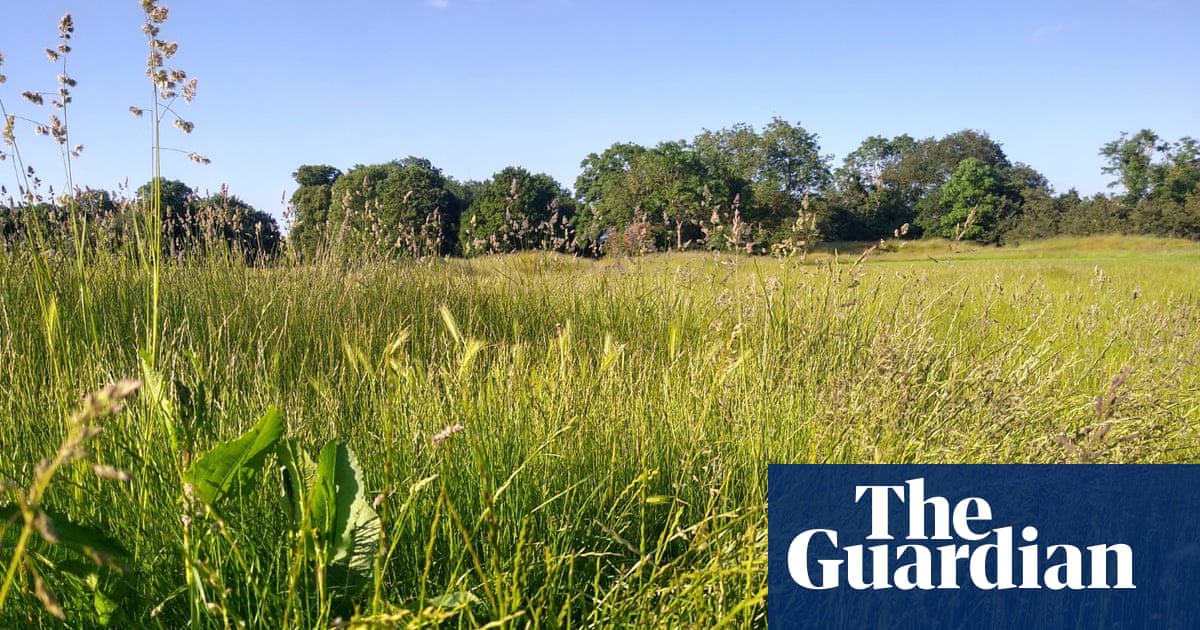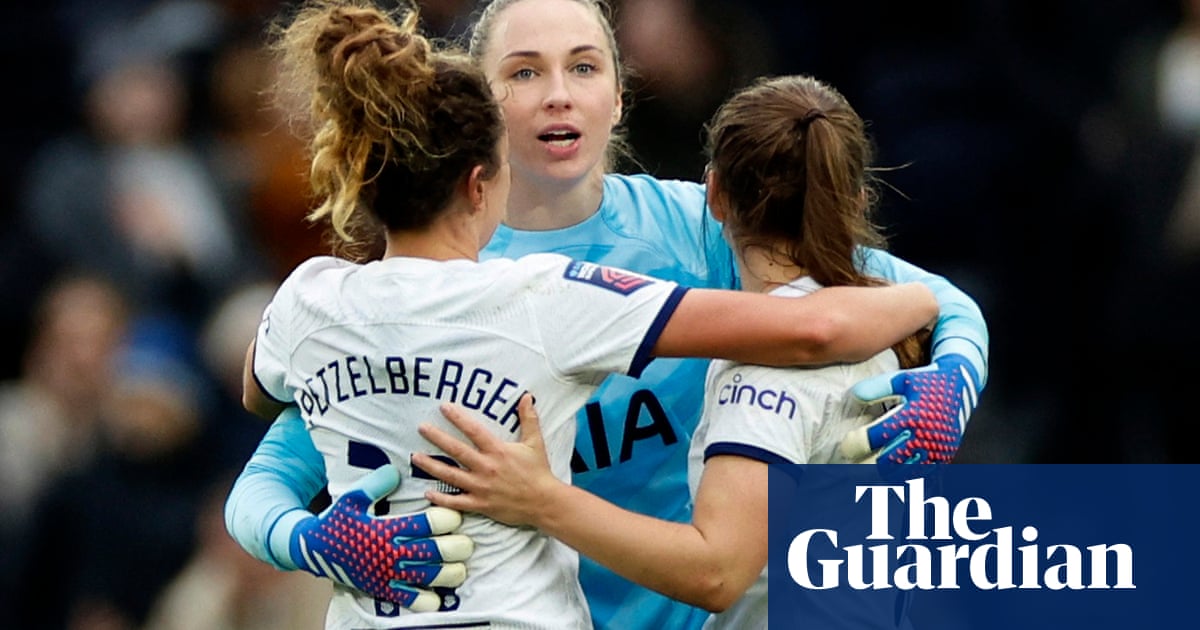
The expansion of women’s football has been pitched against public green space and a rewilded golf course in a growing dispute between Tottenham Hotspur Football Club and local residents.
The club are expected to submit a planning application for a “world-leading” women’s football academy with all-weather pitches, floodlights and a “turf academy” on a section of Whitewebbs Park a few miles from their stadium in north London.
But the proposals – on parkland that is rich in wildlife and mature trees – are vehemently opposed by many local people, who do not want to see a swath of public green space developed and enclosed by a 2-metre-high fence.
The 97-hectare (240-acre) Whitewebbs Park lies between two ancient woodlands and is home to 80 species of bird and at least nine species of bat, as well as great-crested newts and badgers. It is also believed to be the best site in north London for butterflies, with 29 species including the rare brown hairstreak, the purple emperor and white-letter hairstreak.
Enfield council faces a high court challenge over its decision to hand Spurs a 25-year lease. Spurs will pay just £2m for 53 hectares of the park, which they will develop and manage. Thirty-five of those hectares would remain publicly accessible, but 18 hectares would house the new women’s and girls academy and the sports turf academy.
Campaigners say that Spurs’ proposed enclosure is not lawful. They also object to the terms of the council’s deal with the football club, which is majority owned by Enic International Limited, a multibillion-pound investment company based in the Bahamas.
Pratik Sampat, a local resident and treasurer of Friends of Whitewebbs Park, said: “I’m a lifelong Spurs fan and I love the club but what they are doing is just insane. It’s a tremendously beautiful natural space – pure, green and biodiverse. It’s got a real heartbeat and it connects with ancient woodland and other green space in Enfield. It’s just not the sort of space we should build over with plastic pitches.”
A judicial review of the council’s decision to lease more than half of Whitewebbs Park to Spurs has been successfully brought by another resident, Sean Wilkinson. But before the judicial review can be heard in the high court in February, Enfield council – with Spurs listed as an “interested party” on its side – is appealing against the court’s decision to give campaigners a “cost capping” order, which protects individuals from prohibitive legal costs in cases of environmental justice.
If Enfield council and Spurs’ challenge is successful, it means Wilkinson could be liable for thousands of pounds of legal costs – jeopardising the pensioner’s legal challenge.
“An OAP versus a £3bn offshore company – it has a touch of the David and Goliath, doesn’t it?” said Wilkinson. “The cost-capping challenge is intimidating. This is a case of national importance which deserves cost-capping and should not be subject to the financial muscle of exceedingly large corporations.”
Groups opposing the development include Enfield RoadWatch and CPRE London, which believes the lease is unlawful because it restricts public access to a public park. It says that if a swath of Whitewebbs is fenced off by Spurs it will open up other public parks across the country to similar privatisation.
Alice Roberts, of CPRE London, said: “We’re fundamentally concerned about the public’s rights and the fact that it’s members of the public who have to defend those rights. This is clearly a public park. Councils are meant to hold this land in trust for the public but it seems that they sometimes regard it as an asset that they can just sell.”
For years, a portion of Whitewebbs was given over to a golf course that was open to everyone until it was closed permanently in 2021, with the council saying it was losing money. Since then, the course has rewilded and the park and its bridleways are popular with walkers, cyclists and horse riders.
The new academy would have fenced-off facilities restricting access to the public; it would consist of the women’s academy and a specialist turf academy that Spurs say will provide employment and training opportunities for sports turf, green-keeping and horticultural staff.
The remaining 66% of the leased area would remain open to the public, with Spurs pledging to restore the former golf course to historic parkland, repair a pond and build a new cafe and meeting area. The club say they will remove 102 mature trees and plant 3,000 new ones, upgrading footpaths and creating a birdwatching platform and a “biodiversity corridor”.
But local people argue that the council should be receiving far more money from the lease. Wilkinson said: “There are clearly alternative pieces of land that Spurs could go for but that would probably cost them £20m whereas we have a council effectively subsidising a multibillion offshore company. I don’t understand the council’s reasons for doing that.”
Campaigners have written to the government asking it to overrule Enfield council’s finding that it was not necessary to carry out an environmental impact assessment for the development of the park ahead of Spurs submitting their full planning application next year.
An Enfield council spokesperson said: “The lease of part of Whitewebbs Park is set to bring significant benefits to the local community including the protection and enhancement of the park and woods, further investment in a new on-site cafe, toilets and other facilities as well as preserving open public access to over 80% of the park for all residents.”
Asked about Wilkinson’s comment that he felt “intimidated” by the attempt to strip “cost protection” from his legal challenge, the council spokesperson said: “Enfield council is confident that proper legal processes and procedures have been followed at all times leading up to the award of the lease at Whitewebbs and expects to be successful in defending the claim. In these circumstances, as a publicly funded body, it is right and proper that the council takes all reasonable steps to enable it to recover its legal costs.”
Spurs declined to comment on the legal challenge or their forthcoming planning application.
Sampat was recently given a tour of Spurs’ current training facilities and said that none of the 14 pitches were in use during his Thursday afternoon visit. “It’s already one of the best facilities in the world. There is already a massive women’s facility. It’s admirable to want to create the best women’s football training ground in the world but it’s just not the right place to do it.”












